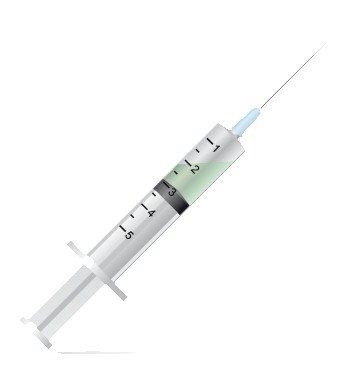Vaccine for cocaine dependence: A randomized double-blind placebo-controlled efficacy trial


Abstract
Aims
We evaluated the immunogenicity, efficacy, and safety of succinylnorcocaine conjugated to cholera toxin B protein as a vaccine for cocaine dependence.
Methods
This 6-site, 24 week Phase III randomized double-blind placebo-controlled trial assessed efficacy during weeks 8 to 16. We measured urine cocaine metabolites thrice weekly as the main outcome.
Results
The 300 subjects (76% male, 72% African–American, mean age 46 years) had smoked cocaine on average for 13 days monthly at baseline. We hypothesized that retention might be better and positive urines lower for subjects with anti-cocaine IgG levels of ≥42![]() μg/mL (high IgG), which was attained by 67% of the 130 vaccine subjects receiving five vaccinations. Almost 3-times fewer high than low IgG subjects dropped out (7% vs 20%). Although for the full 16 weeks cocaine positive urine rates showed no significant difference between the three groups (placebo, high, low IgG), after week 8, more vaccinated than placebo subjects attained abstinence for at least two weeks of the trial (24% vs 18%), and the high IgG group had the most cocaine-free urines for the last 2 weeks of treatment (OR
μg/mL (high IgG), which was attained by 67% of the 130 vaccine subjects receiving five vaccinations. Almost 3-times fewer high than low IgG subjects dropped out (7% vs 20%). Although for the full 16 weeks cocaine positive urine rates showed no significant difference between the three groups (placebo, high, low IgG), after week 8, more vaccinated than placebo subjects attained abstinence for at least two weeks of the trial (24% vs 18%), and the high IgG group had the most cocaine-free urines for the last 2 weeks of treatment (OR![]() =
=![]() 3.02), but neither were significant. Injection site reactions of induration and tenderness differed between placebo and active vaccine, and the 29 serious adverse events did not lead to treatment related withdrawals, or deaths.
3.02), but neither were significant. Injection site reactions of induration and tenderness differed between placebo and active vaccine, and the 29 serious adverse events did not lead to treatment related withdrawals, or deaths.
Conclusions
The vaccine was safe, but it only partially replicated the efficacy found in the previous study based on retention and attaining abstinence.

